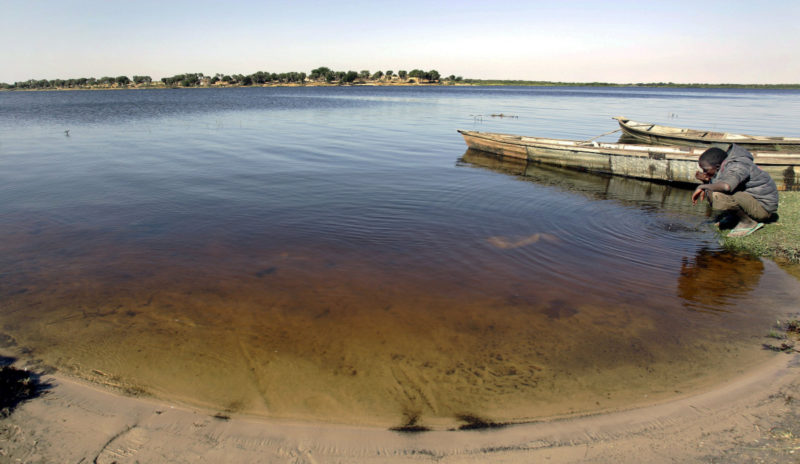Countries in the Lake Chad region have been enjoined to double efforts to save the dwindling water body that is aggravating environmental degradation and migration in the region and consequently impacting on the social and economic wellbeing of the population.

Representatives of member countries of the Lake Chad Basin Commission (LCBC), comprising Nigeria, Cameroon, Niger, and Chad, who are attending the 6th Africa Water Week in Dar es Salam on July 19, 2016, agreed on the need to multiply strategies towards saving the lake.
“Countries from the lake Chad need to coordinate their multiple efforts, bringing in new stimulating perspectives to save this important lake on which the livelihood of millions of people hinges,” said Mana Boubakari, technical director of the Lake Chad Basin Commission at a side event on ground water management in the lake Chad basin.
He said restoring the water body would help reduce poverty, transform the lives of people in the region especially women and youths and drastically reduce the incentive to migrate to other regions.
Migration from the region according to reports have continued to surge as life becomes unbearable to the mostly agricultural and fishing population therein. The effect on the degrading land triggered by the shrinking lake on migration is just stark, experts say.
“We cannot ignore the huge unemployment of especially the youths in countries of the region who are left with no choice than seek for opportunities elsewhere,” said Professor Ibrahim Goni of the University of Maiduguri.
Statistics from the UN Convention to Combat Desertification (UNCCD), estimate that over 60 million people are likely to migrate from the region by 2020 as the water from the lake continue to shrink.
The situation has been compounded by disturbing insecurity imposed by Boko Haram whose push for a hardline Islamic state in northeast Nigeria has left hundreds of thousand people dead since 2009.
The surge in the marauding criminal activities of Boko Haram has led to increase poverty, loss of resource opportunities and breeding conflict and political instability. “Environmental breakdown and security threats in the Lake Chad Basin region especially in Cameroon, Chad and Nigeria is increasing and so we need additional efforts if we have to fight poverty, preserve peace and promote sustainable development,’’ noted Dr Fantung Wilson Yetoh, of the Institute of Mining and Geological Research in Cameroon at the side event discussion in Dar es Salam.
Members of the Lake Chad Basin Commission however say they were leaving no stone unturned with collective efforts to intensify security especially in the fight against the Islamic terrorist group, Boko Haram.
“A joint security effort is working to intensify security in the region,” Fantung Wilson said.
Development experts however agree that the campaign against degraded land like the case in the Lake Chad Basin region is the responsibility of all. They warn that the poverty situation may get to unbearable levels if nations continue to procrastinate than act forthrightly.
“The prospects of a land degradation neutral world will grow dimmer if we procrastinate. But it will shine brighter each time a country joins the campaign to restore degraded land and water bodies.” said Monique Barbur, UNCCD Executive secretary, in an address during the World Environment Day on Desertification on June 17, 2016.
She advised that land degradation neutrality should be a top policy goal for every nation that values freedom and choice.
The 6th Africa Water Week, organised by African Ministers’ Council on Water (AMCOW) in collaboration with the African Union Commission (AUC) and other development partners, seeks accordingly, to lay pathways for Africa’s drive towards achieving the SDG 6, as well as other inter-linking SDGs rooted in water resources management.
